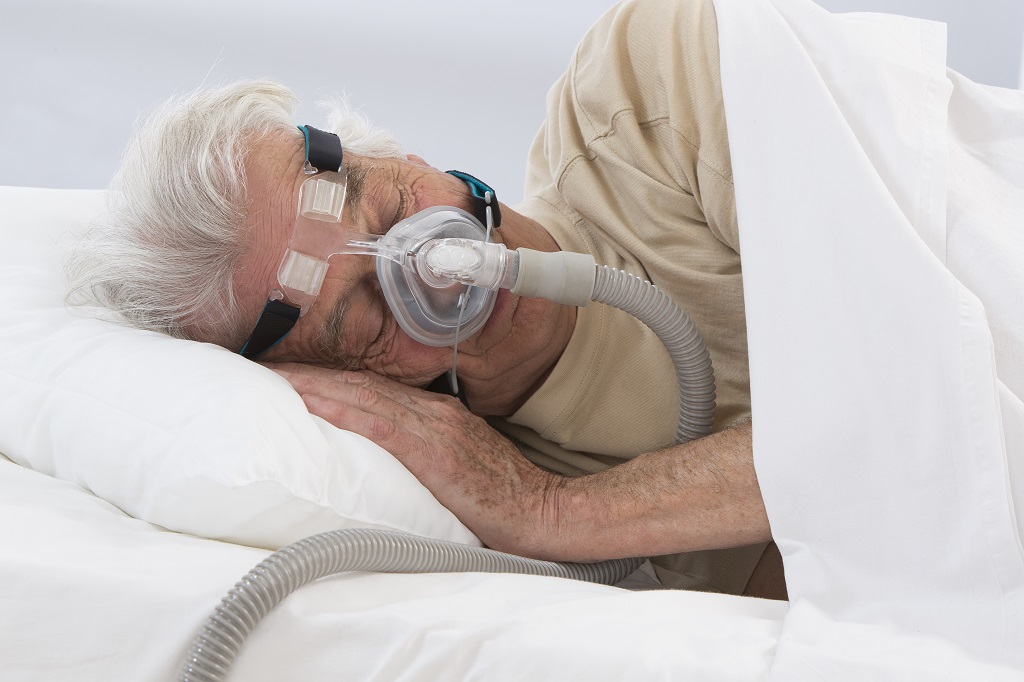
In an interesting turn of events, experts have discovered that sleep apnea health issues could be at the root of certain PTSD problems in veterans. Many veterans suffer from obstructive sleep apnea which is most often a collapse of the airway in the individual, occurring during sleep. A recent study surveyed 47 veterans who suffered from both post-traumatic stress disorder and obstructive sleep apnea and the following items were tested:
- Epworth Sleepiness Scale (ESS)
- PTSD Checklist-Military (PCL-M)
- Nightmare Distress Questionnaire (NDQ)
- Nightmare Frequency Questionnaire (NFQ)
Ultimately, while 47 veterans were recruited for the study, a total of 40 managed to complete it. Researchers found that PTSD did, in fact, improve depending on the duration of the CPAP usage. Veterans who were suffering from severe PTSD had the greatest improvement as compared to those with mild to moderate PTSD. While other factors were tested, it was found that the CPAP usage was really the only reliable indicator of a decrease in PTSD, and researchers believe that the PTSD might actually be caused by an underlying RPM sleep issue that OSA tends to amplify and worsen.
The current thought is that CPAP is believed to consolidate emotional memory, especially during REM sleep, which can assist in the recovery from traumatic events.
So what does this study mean exactly? The problem with the current study is that it used a very limited sample size and it had no control group. While there are many who might have improved due to healthy user bias, it is entirely possible that some actually improved and that certainly warrants further studies in more controlled environments. Additional studies, however, would need to include a much larger group of veterans, and most definitely a control group of some kind. With the number of veterans coming home every single year, and the number of health issues that PTSD has caused over that time, any research that can help them should most definitely be continued for the foreseeable future.
Sleep Apnea Study Equipment at Home
While sleep apnea studies in the lab are great, not everyone has the time or the interest in coming to the laboratory. First of all, no one likes sleeping in an unfamiliar, possibly uncomfortable bed. It might get results, but here’s a good question: is it going to get the results that the individual needs to treat their symptoms? Well, in the end, it will probably tell you that you have sleep apnea, but the data won’t be perfect. You would be restless anyway, and drifting in and out of REM sleep would be a given unless you are already such a heavy sleeper that you simply wouldn’t notice one way or the other.
At home sleep studies have paved the way for more natural sleep patterns and of course better results. These studies can be performed using lab-provided devices which will be deployed when the user goes to sleep, gathering their data, and delivering it to their primary care physician who will be able to determine the best course of treatment should the study reveal that the individual is, in fact, suffering from sleep apnea.
There is still a long way to go as far as an effective treatment for OSA is concerned – there is currently no FDA approved medication that will make a significant difference, and CPAP machines, while very effective, have proven to be very uncomfortable, which may be why several of the veterans did not finish the test.
The development of sleep apnea study devices for the home can be beneficial to regular users and veterans alike, and hopefully, the improvements in this technology will continue to help our veterans achieve a better quality of life.
VirtuOx is the leader in home sleep tests and pulse oximetry.
Click the link below to get more information plus to receive a FREE Report…